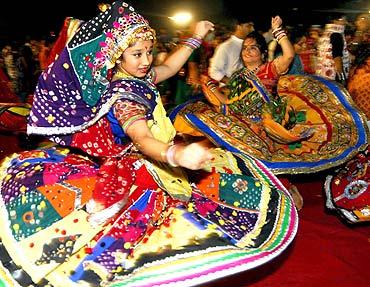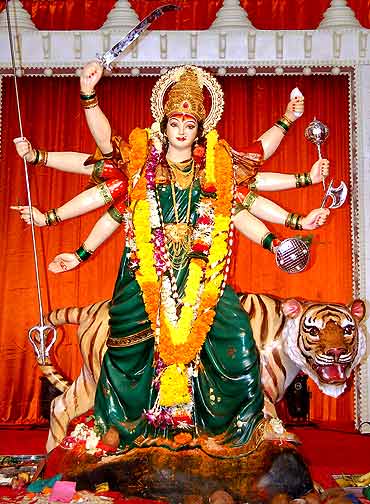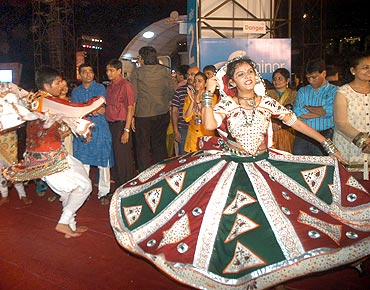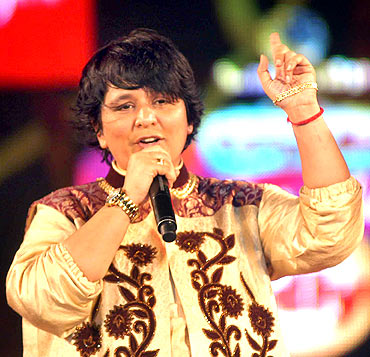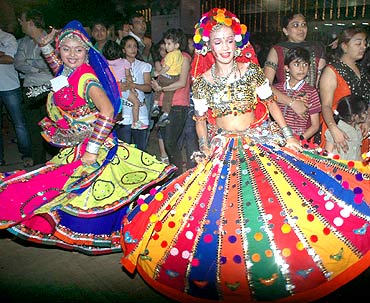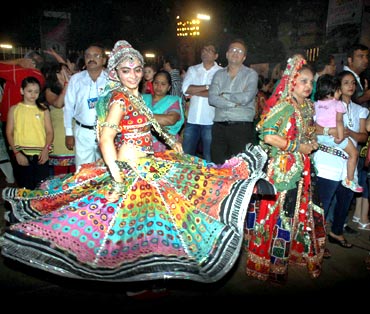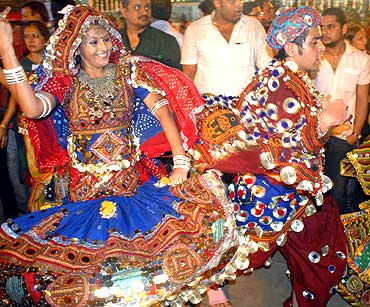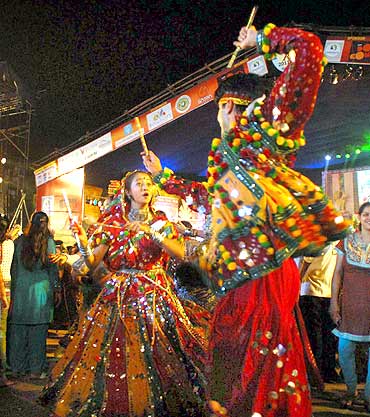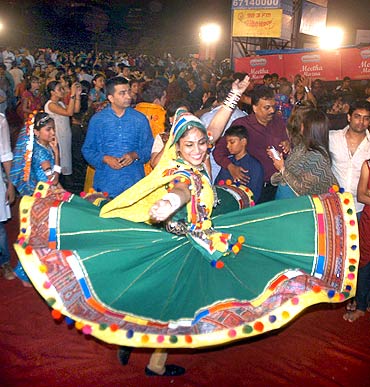 | « Back to article | Print this article |
IN PHOTOS: Mumbai celebrates Navratri
As India celebrates Navratri (nine nights in Sanskrit) with great pomp and splendour, we bring you glimpses of festivities in Mumbai.
Navratri symbolises nine avatars of goddess Durga, who killed nine evil forces. Navratri begins from the first day of the bright fortnight of Ashwin, which usually coincides with the end of the rainy season.
Click NEXT to read further...
IN PHOTOS: Mumbai celebrates Navratri
According to Hindu scriptures, the demon Mahishasur, after he was bestowed immortality by Lord Indra, ran amok on Earth and in heaven.
Tormented by Mahishasur and other asuras, the gods invoked Durga and sought her help to put a stop to their suffering.
Astride her lion and armed with her weapons, the 'shul' (pike), 'chakra' (wheel), 'parshu' (axe) and 'talvar' (sword), she fought the demons for nine days and nine nights, finally defeating them.
Click NEXT to see more photos...
IN PHOTOS: Mumbai celebrates Navratri
The Gujarat government has made elaborate security arrangements ahead of the Navratri festival beginning from Friday.
Gujarat, where the Navratri festival has been celebrated in traditional fervour and pomp, has been on alert and besides the state capital, security at cities like Vadodara, Surat, Rajkot and other parts of the state has been increased, he said.
In order to ensure that the festival passes off peacefully, private security guards and additional closed circuit television (CCTVs) cameras have been installed at vantage points at the venues where garba (traditional navratri dance) is performed every night in the praise of goddess, police said.
Click NEXT to see more photos...
IN PHOTOS: Mumbai celebrates Navratri
Folk and fusion singer Falguni Phathak, who chose to celebrate Navratri in Gujarat, last year, is back in Mumbai this year.
IN PHOTOS: Mumbai celebrates Navratri
Dandiya celebrations at Ghatkopar police ground. The nine nights of Navratri are replete with rituals, colour, mirth, dance and music.
Click NEXT to read further...
IN PHOTOS: Mumbai celebrates Navratri
Women wearing colourful ghagra-cholis, bandhani dupattas and dazzling jewelry perform the traditional garba dance.
Click NEXT to see more photos...
IN PHOTOS: Mumbai celebrates Navratri
In Bengal, Durga Puja is celebrated for four consecutive days. The last day of the Bengali festival is Dusshera in other parts of India.
Click NEXT to see more photos...
IN PHOTOS: Mumbai celebrates Navratri
The tenth day is Vijaya Dashami or Dusshera. It ushers in a new beginning -- where good has once again triumphed over evil.
IN PHOTOS: Mumbai celebrates Navratri
Musical groups are booked much in advance, while disco and/or film music replace devotional songs. For the young and restless, this is a good time to let their hair down and dance the night away.
